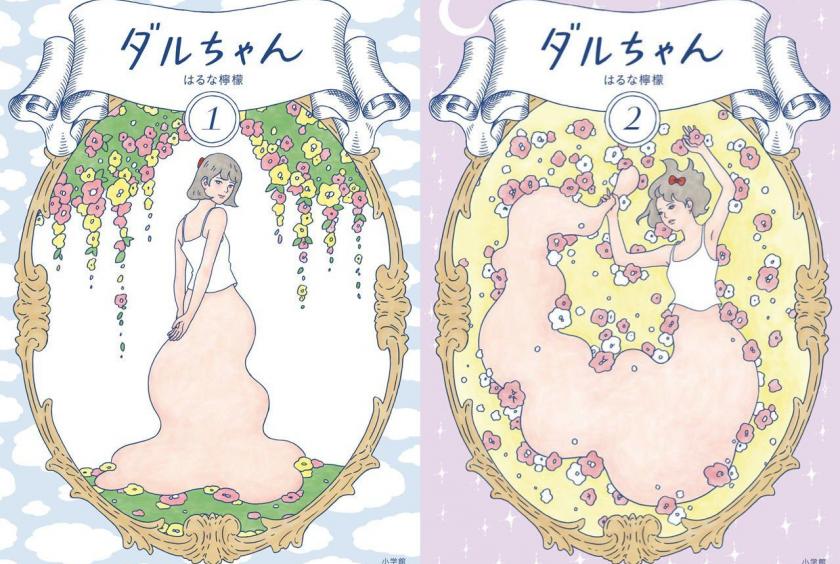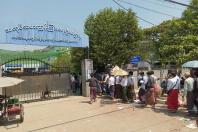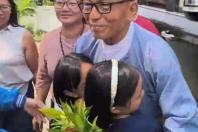
(Yomiuri Shimbun/ANN) — Quite a few TV dramas recently have focused on how distressing and unpleasant it can be for women to work in male-dominated Japanese society, such as “Kemono ni Narenai Watashitachi” (We can’t quite become beasts) or “Haken Uranaishi Ataru,” (Ataru, the temporary fortune-teller) and the current season’s drama “Watashi, Teiji de Kaerimasu” (I am going home without doing overtime).
When I watch these shows, I sometimes feel that women’s quiet anger has filled the cup of patience right to the brim, and it is ready to overflow with just another drop.
I detect a similar feeling in this week’s manga, “Daru-chan,” which appeared online in 2017 before being published in two volumes in December 2018. It sold over 100,000 copies in just one week. Men must brace themselves to read it.
The story begins with delightful humor, so it took me off guard. The real “identity” of Narumi Maruyama, a 24-year-old temporary staff worker, is Darumi Daruyama from Planet Darudaru. The inhabitants of Darudaru are creatures of flabby, undefined shape. When relaxing at home, they return to their original flabby form, but when they go out among earthlings, they “simulate” a human appearance in order to hide their identity.
Narumi is born of human earthling parents, but for some unknown reason Narumi is born as an alien from Darudaru. As soon as she realized that she was a bit different from others, she worked extremely hard to achieve a technique to appear like an ordinary girl. However, by simulating others too well, she sometimes loses track of her own real feelings.
She finds it most difficult when she has to participate in a workplace nomikai, or drinking with colleagues after work. Her boss negatively changes personality when he drinks. Male colleagues start calling her by her first name with a casual and informal “chan” suffix, apparently hoping to get her into bed. Her female senpai Sato-san starts preaching that Narumi should not be smiling so nicely at guys who trample on her dignity, but Narumi feels that she actually has greater dislike for Sato-san than for those guys.
Mangaka Lemon Haruna’s drawings consist of lightly flowing lines and calm color undertones, but the story is quite serious and heavy. The ingenious satire of creating aliens from Planet Darudaru is excellent. I can’t help wishing, however, that more of this idea had been converted into deadpan humor. But then this may just be a “male” reaction (from the viewpoint of a perpetrator of women’s woes), and apparently Daru-chan has no room in her mind for such things.
Eventually, writing poetry saves Daru-chan. The original “Daru-chan” series appeared on Web Hanatsubaki, a digital media site of Shiseido Co. From the 1980s until 2017, the company sponsored the well-known “Gendaishi Hanatsubaki Prize” (Hanatsubaki Prize for Contemporary Poetry). It was discontinued in the same year that the “Daru-chan” series began. Only a few prizes exist that attempt to bring contemporary poetry into the world. Hopefully, “Daru-chan” becoming a big hit will give momentum to the idea of resurrecting poetry prizes, possibly helping more women like Daru-chan keep their feelings from spilling over with “just another drop.”
By Kanta Ishida / Yomiuri Shimbun Senior Writer
The manga this week
Daru-chan
By Lemon Haruna (Shogakukan)
Ishida is a Yomiuri Shimbun senior writer whose areas of expertise include manga and anime.









